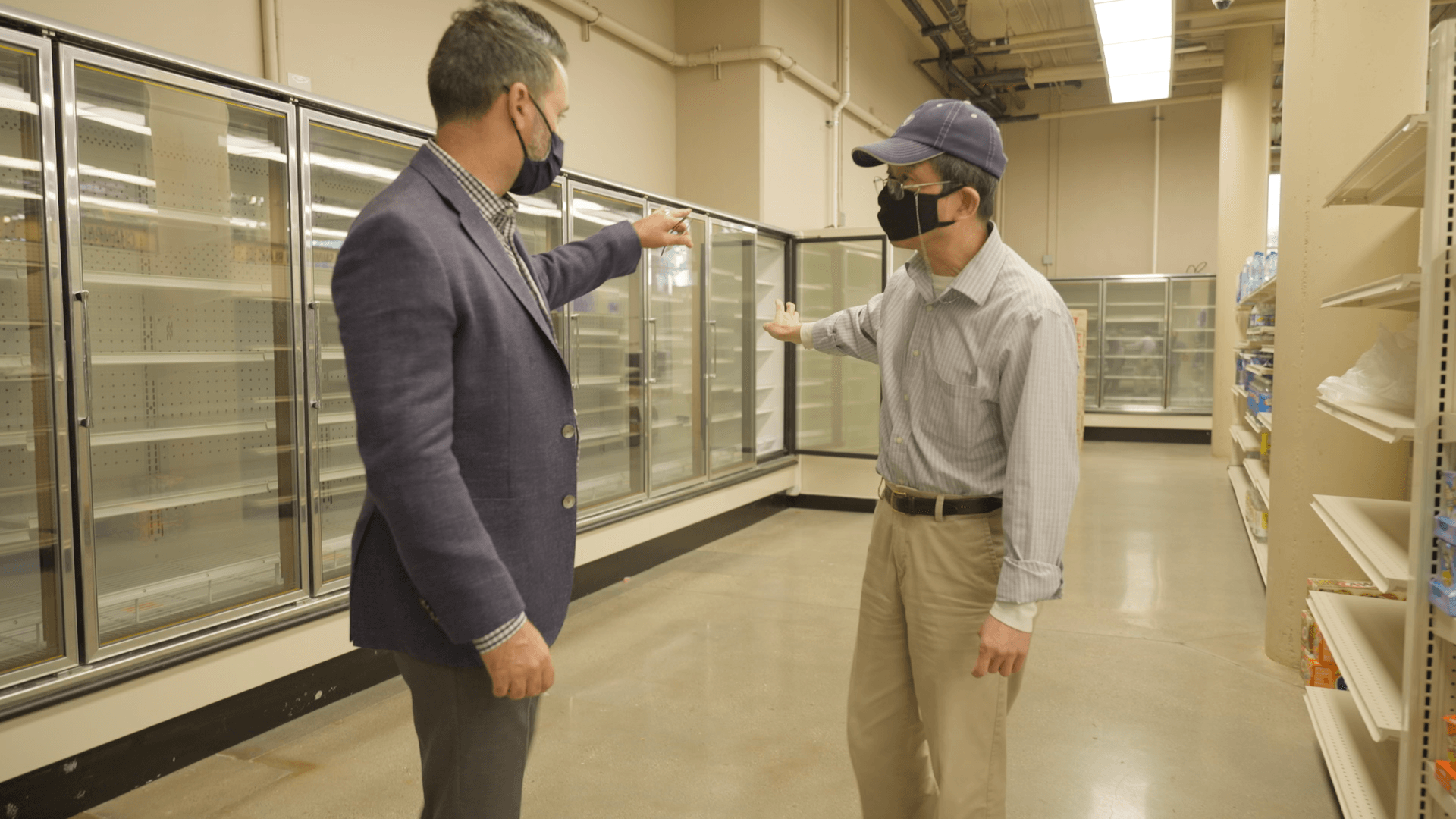Could a new kind of grocery store be the answer to the Bayview neighborhood’s food desert problems?
That was the topic of a recent workshop exploring the possibility of revamping a 14,000 square-foot space on Third St.—recently home to two different supermarkets that failed—into a first-of-its-kind “food empowerment market.” The idea is a community market that would distribute donated or subsidized food—but unlike a food bank, eligible shoppers would be able to pick and choose their own groceries and either pay for the goods at a subsidized price or obtain them for free.
The market would also host an on-site community kitchen focusing on culinary education and offer free delivery service for seniors and those with mobility issues.
“We respect and appreciate food pantries, and they need to continue, but we also need to create a space that distributes food in a more efficient and faster way to communities,” said Board of Supervisors President Shamann Walton, who hosted the workshop alongside District 11 Supervisor Ahsha Safai. “Folks being able to come and pick the things that they actually need rather than taking things that are just going to go to waste is important.”
The Food Empowerment Market idea stems from legislation introduced by Safai that allocates $1.5 million in startup funds from the Human Service Agency to establish the model for the new market in partnership with a yet-to-be-named neighborhood nonprofit.
Bayview-Hunters Point is considered a food desert by the U.S. Department of Agriculture and has the highest rates of obesity in San Francisco with less than five percent of food sold in the neighborhood consisting of fresh produce. The neighborhood also has the most residents (mainly seniors) facing food insecurity than anywhere else in the city, according to a report from the San Francisco Department of Public Health.
The 5800 Third St. location was previously occupied by Duc Loi’s Pantry, and before that, by a Fresh & Easy market. Since it is already built out as a supermarket, it could be a comparatively easy “turn-key” pilot for the food empowerment concept.
“We’re trying to find a place in District 10 to address this issue of food insecurity first, and then, of course, expand this concept across other districts in the city. Duc Loi’s just happens to be a space that’s available,” President Walton added.
A deal would still have to be done with Howard and Amanda Ngo, who own the popular Duc Loi’s Market in the Mission District and worked with the city to buy the Third Street site after Fresh & Easy closed.
Larry Brucia, a store design consultant and president of the Sutti Associates, said getting a food empowerment market up and running could be as simple as turning the lights on.
“Traditionally, when you develop a grocery store, most of the money which typically adds up to millions of dollars is spent on the infrastructure – which is the mechanical, electrical, plumbing, refrigeration,” said Brucia. “In this particular case, Duc Loi’s Pantry has all the necessary equipment, so the infrastructure costs have already been embedded within the space.”
A Safai spokesman said his office and the Human Services Agency are currently in talks with Ngo about the concept and how the space might be leased from him. Ngo could not be reached for comment.
Star-Crossed Site
Some residents who live in the condos above the vacant store have questions about how the food empowerment concept would serve them.
“I’m curious to understand what they mean by this new format and how it would work,” said David Juarez, who is president of 5800 Third Street’s homeowners’ association. “An activated grocery store was one of the main reasons I decided to buy here, and I am all for food empowerment, but I believe the storefront should also serve the folks who actually live in this building and the surrounding residents who may be middle income.”
That has proven to be a tough task. In 2011, the Bayview District welcomed Fresh & Easy, an upstart grocery chain owned by British food giant Tesco. The Bayview location delivered weak sales, but it was hardly alone: Tesco sold most of the stores and closed the rest in 2013, and the chain soon disappeared into bankruptcy.
The store sat empty for a few years while former Supervisor Malia Cohen worked with Mayor Ed Lee and the Office of Economic and Workforce Development (OEWD) on finding a new owner. They landed on Howard and Amanda Ngo.
With a $250,000 investment from OEWD and $4.1 million from the Small Business Administration, the couple hosted the grand opening for their second Duc Loi’s Pantry at 5800 Third Street in 2016. But the store closed in 2019 due to a range of factors, including lack of patronage from the surrounding community.
Walton said both Fresh & Easy and Duc Loi’s Pantry could have done more to engage the locals. “In a growing community where there are folks who have been here for decades and new folks coming in, you have to find that connection with everyone that is around you and let them know that your service is available, and I just feel that both entities did not necessarily do that.”
Resident Anietie Ekanem, who is also part of 5800 Third’s HOA, also noted a seeming lack of patronage of Duc Loi’s Pantry.
“I liked what Duc Loi’s had to offer in terms of food options, but would agree there was never a real connection with the community,” said Ekanem. “This area is tough because there is limited foot traffic, so some outreach would have been helpful. My hope is that whatever grocery store comes into this space has healthy options and quality products.”
